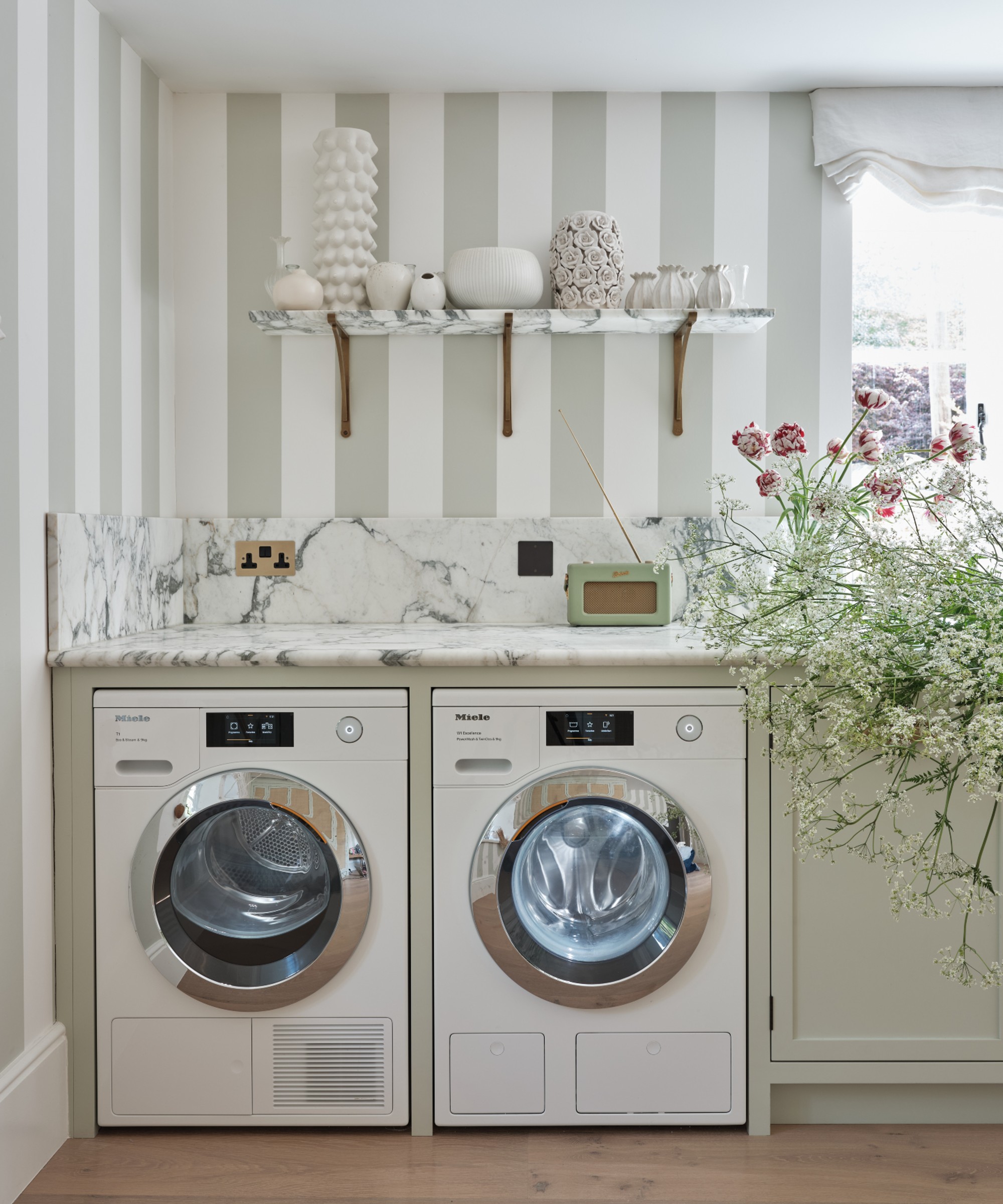4 simple ways to remove soda stains from upholstery and clothes
Learn how to save your garments and furniture from accidental spills


Design expertise in your inbox – from inspiring decorating ideas and beautiful celebrity homes to practical gardening advice and shopping round-ups.
You are now subscribed
Your newsletter sign-up was successful
Want to add more newsletters?
Soda stains are among the most annoying to clean. Whether it's an accidental spill on your sofa or your favorite T-shirt, it's important to tackle these stains as soon as they occur.
For stains that have been left for a while, the job becomes tremendously harder as the stain sticks on the fibers of the fabric, requiring more effort and more inventive ways of removing it.
Soda stains can be tricky, but with the right approach and following the golden rules of stain removal, you can restore your fabric and clothes to their original state.
How to remove soda stains from upholstery and clothes
As soon as a soda spill occurs, grab a clean white cloth or paper towel and start blotting the affected area to soak up as much of the liquid as possible. Avoid rubbing the stain, as this can only spread it further and cause it to settle deeper into the fabric.
Before using any cleaning solution on your upholstery or clothes, Daniel Brown, cleaning expert and CEO of Handy Cleaners, suggests that you spot test in an inconspicuous area to ensure it won't cause damage or discoloration. ‘Choose a small, hidden area of the fabric and apply a small amount of the cleaning solution,’ Daniel says. ‘Wait for a few minutes, then blot with a clean cloth to check for any adverse reactions.’

Method 1: Vinegar Solution
When removing soda stains from upholstery and clothes, cleaning with vinegar is always a safe choice. Vinegar's acidity is so high that it dissolves mineral deposits as well as dirt and grease. In fact, vinegar is powerful enough to kill bacteria.
In order to create a vinegar solution, you first need to mix equal parts of white vinegar and water in a spray bottle. White distilled vinegar from Amazon is the best type of vinegar to use, as it does not contain a coloring agent and will not stain the surface you are trying to clean.
Design expertise in your inbox – from inspiring decorating ideas and beautiful celebrity homes to practical gardening advice and shopping round-ups.
Spray the solution onto the soda stain and let it sit to penetrate the fabric. After a few minutes, blot the stained area with a clean cloth until the stain lifts. Dampen a cloth with the vinegar solution and blot the stain. Vinegar helps to break down the stain and deodorize the fabric. Blot with clean water to remove vinegar residue, then dry with a clean towel.
Method 2: Dish Soap Solution
One alternative to vinegar-based cleaning solutions is one with dish soap. Whilst less acidic than vinegar, dish soap such as Seventh Generation Dish Liquid Soap from Amazon is still effective at cutting through stains, including soda stains.
‘For clothes, gently rub the dish soap into the garments with your fingers or a soft brush. Soak the garment in cold water for 15-30 minutes. This will help loosen the stain,’ says cleaning expert Karina Toner from Spekless Cleaning. ‘Once soaked, wash the clothes according to the care label instructions, using the hottest water safe for the fabric. Check the stain before drying. If it’s still visible, repeat the treatment. Drying can set the stain, making it harder to remove.’
With upholstery, mix a few drops of dish soap with warm water to make a sudsy solution. Once you have created the solution, dip a clean cloth or sponge in the solution and gently blot the soda stain. Continue blotting until the stain is gone; rinse the area with water and blot dry.
Method 3: Baking Soda Paste
Baking soda is one of the most reliable and versatile household cleaning agents. In addition to removing soda stains, it can also be used to remove stains from kitchen countertops and clothes without bleaching them.
Mix baking soda, such as ARM & HAMMER Pure Baking Soda from Walmart, with a small amount of water to form a paste. Once the paste has been formed, apply it to the soda stain and lightly rub it into the fabric with a soft-bristle brush or cloth.
Wait for the paste to rest for 15-20 minutes, then blot the stained area with a damp cloth to remove the paste and lift the stain. Rinse the area with water and blot dry.

Method 4: Commercial Stain Removers
You could also try using an enzyme-based stain remover or detergent to remove soda stains from furniture or garments. As most stains are made of a combination of proteins and other compounds, enzyme-based cleaners dissolve those proteins and compounds so that the stain can be removed from the fabric.
Make your own enzyme spray with a 1:1 ratio of water and Method Laundry Detergent from Amazon in a spray bottle. Method Laundry Detergent contains a proprietary blend of enzymes that target various stain components, including the specific proteins and sugars found in soda stains). Thoroughly soak the stain with the spray; let sit an hour before washing.
Remember, enzyme-based stain removers are not made for protein-based fabrics like silk, wool, and cashmere, as they can degrade the quality of the fabric over time.
For white or colorfast fabrics, a mix of hydrogen peroxide from Amazon and baking soda can work wonders on stubborn stains. But if all else fails, you could hire a professional upholstery cleaner or consider taking your clothes to a dry cleaner for stubborn or set-in soda stains that just won't come out.

Seraphina is a contributing editor at Homes & Gardens, writing Solved features on organizing and storage. She loves to decorate and also grow her own produce from her home in London. Her previous experience includes working at Women's Health and Fabulous Magazine.